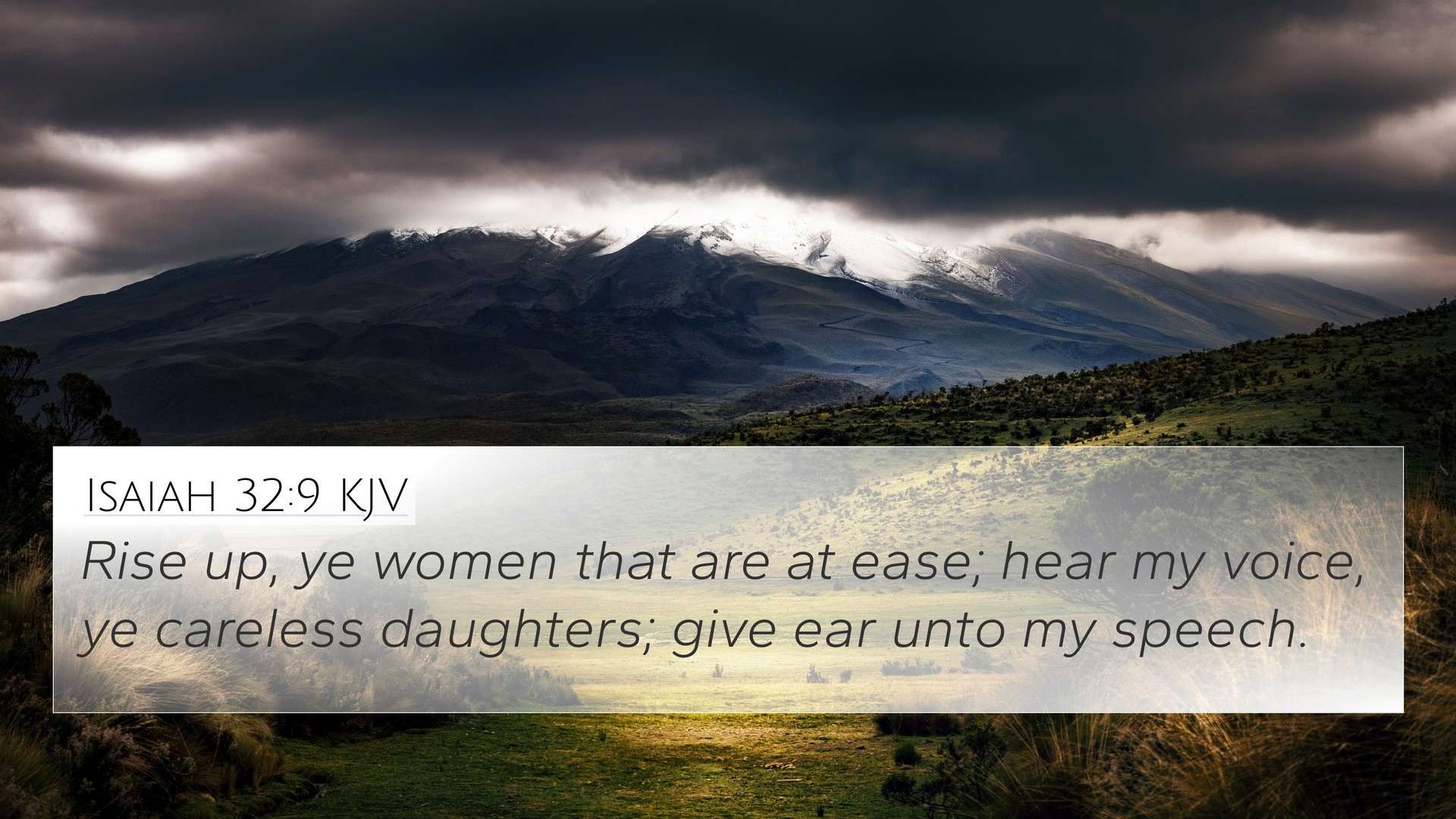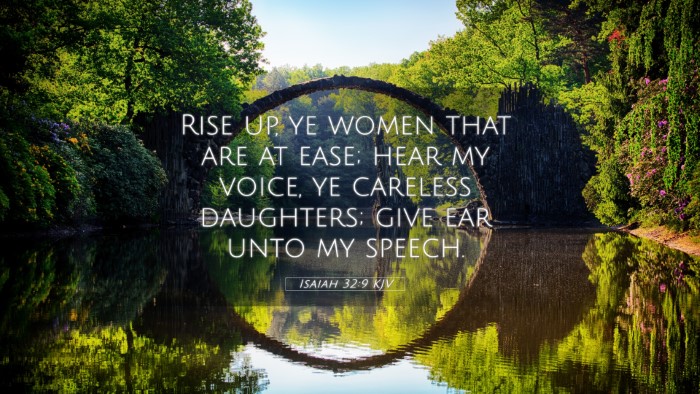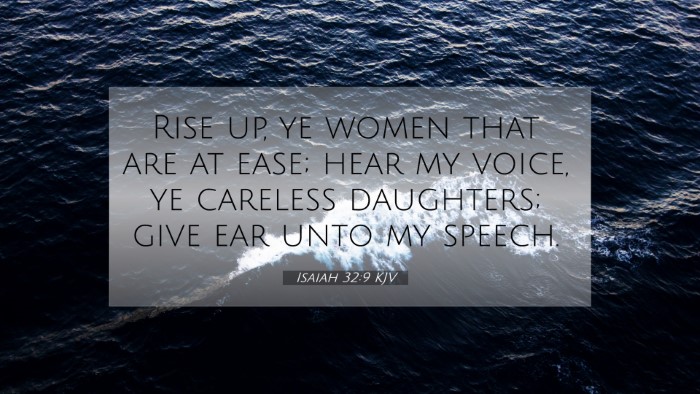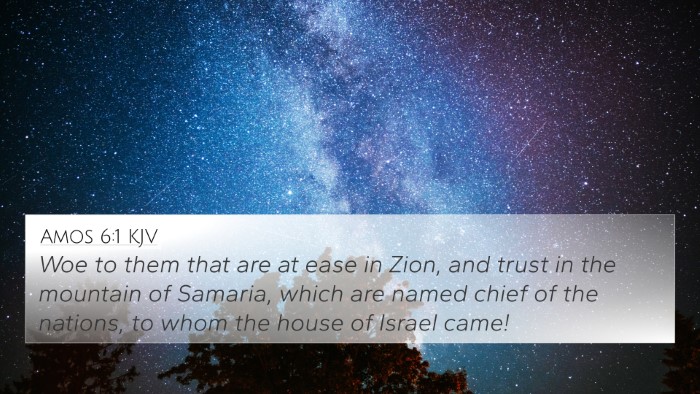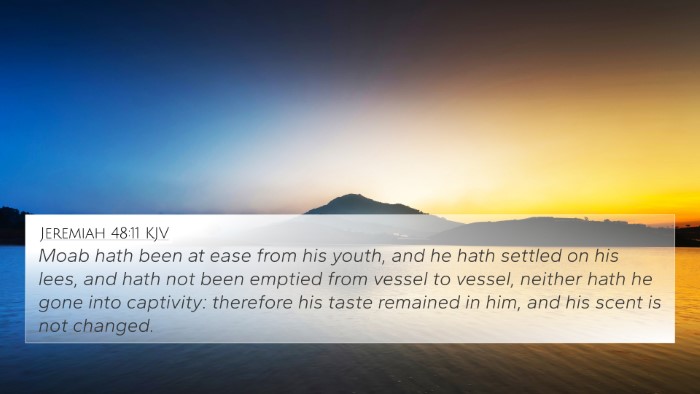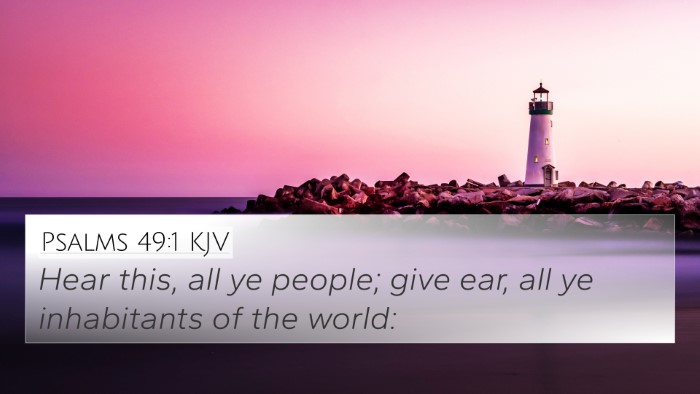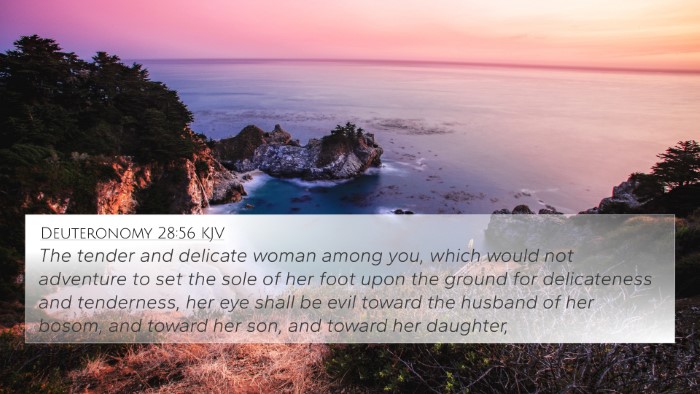Understanding Isaiah 32:9
Isaiah 32:9 states, "Rise up, you women who are at ease, hear my voice; you complacent daughters, give ear to my speech." This verse serves as a poignant call to the women of Jerusalem, urging them to awaken from their complacency amid impending judgments. Below, we will explore the key meanings and interpretations of this verse, drawing from recognized public domain commentaries.
General Interpretation
This verse marks a transition in Isaiah's message, directing attention towards those who are comfortable in their current state, particularly in times of moral decline and spiritual apathy.
Call to Action
- Admonishment of Complacency: The women represent those who have become complacent, living in ease while neglecting spiritual responsibilities.
- Awakening to Reality: The urgent tone suggests a need for awareness. A similar theme is present in Proverbs 1:32, which warns of the consequences of ignoring wisdom.
- Responsibility for the community: Women, as influential members of society, are called to recognize their role in maintaining spiritual health within the community.
Insights from Commentaries
Matthew Henry's Commentary
Matthew Henry emphasizes that this call serves as a wake-up call to those oblivious to the coming troubles. He suggests that spiritual apathy can lead to societal decay, indicating that this verse is part of a broader warning against complacency in one’s spiritual life.
Albert Barnes' Notes on the Bible
Barnes points out that the "complacent daughters" referred to in this verse are those who enjoy a life of luxury and ease, highlighting the dangers of such a lifestyle when ignoring the call to righteousness. He elaborates on the need for an active faith rather than a dormant one.
Adam Clarke's Commentary
Adam Clarke observes the prophetic nature of Isaiah’s words. He relates this to the larger narrative of judgment and warns that those who are spiritually relaxed will face consequences. Clarke also suggests a historical context where the warnings were relevant to the societal conditions of the time.
Bible Verse Cross-References
Isaiah 32:9 aligns with various other scripture passages. Here are some pertinent cross-references that illustrate similar themes of complacency, warning, and the need for awakening:
- Proverbs 1:32: "The complacency of fools will destroy them."
- Revelation 3:17: "For you say, ‘I am rich, have become wealthy, and have need of nothing’—and do not know that you are wretched, miserable, poor, blind, and naked."
- Luke 12:19: "And I will say to my soul, ‘Soul, you have many goods laid up for many years; take your ease; eat, drink, and be merry.’"
- Jeremiah 48:11: "Moab has been at ease from his youth; he has settled on his dregs."
- Ezekiel 16:49: "Behold, this was the sin of your sister Sodom: she and her daughters had pride, excess of food, and prosperous ease, but did not aid the poor and needy."
- 2 Peter 3:3-4: "Knowing this first: that scoffers will come in the last days, walking according to their own lusts, and saying, ‘Where is the promise of His coming?’"
- Isaiah 30:10: "Who say to the seers, ‘Do not see,’ and to the prophets, ‘Do not prophesy to us right things; speak to us smooth things, prophesy deceits.’"
Thematic Connections
In analyzing Isaiah 32:9, one can draw several thematic connections throughout the Bible:
- Spiritual Apathy: The danger of complacency is a recurrent theme in scripture, urging believers to remain vigilant (1 Peter 5:8).
- Judgment and Restoration: Many prophets warn of impending judgment while also promising eventual restoration to the faithful (Jeremiah 29:11).
- The Role of Women: Women in scripture often represent a moral compass and are tasked with the community's spiritual integrity (Titus 2:3-5).
- Awakening to God’s Call: The need to respond to God’s urging is a prevalent theme leading to spiritual revival (Matthew 11:28-30).
Conclusion
Isaiah 32:9 serves as a profound reminder to recognize spiritual complacency and the need for vigilance within the community. The interconnectedness of this verse with various others emphasizes the enduring message that spiritual responsibility is paramount. By understanding the context, implications, and thematic connections, readers can appreciate the depth of Isaiah's warning and embrace an active faith.
